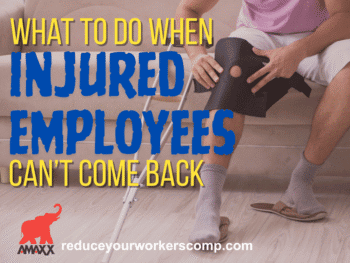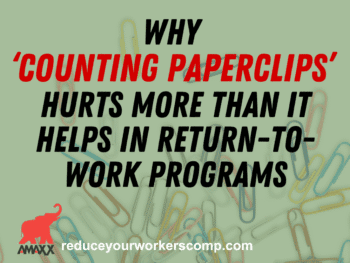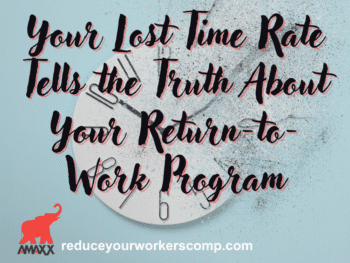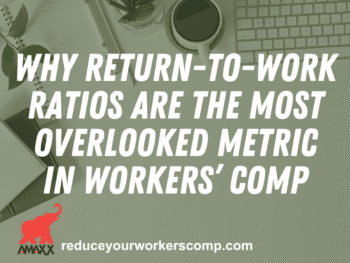
- Benefit rates that can equal take-home pay or employer salary continuations. These elements deter economic incentives.
- Diminished work ethic. This problem generally occurs in the lower socio-economic employee, who can fall back on social support programs.
- Judges and Referees are obligated to find grounds for the employee. A majority of these people are political appointees who have had little or no experience in private business.
- Extensive time and limited allowances for Independent Medical Examinations. This is primarily due to the limited number of medical providers for examinations and records review. It can arise when adjusters fail to schedule them timely with proper documentation.
- Poor adjuster interface. All too often adjusters fail in proper diary for follow-through. They may lack crucial investigation information. Their workload may be too high. There may be attitude issues.
- Adverse media, entertainment, and legal conditioning against employers and insurance The airways are bombarded with advertisements and comments that point to distrust and not to cooperate.
- Economic downturns. This is also a reason for a loss to occur. When an employee fears job loss or lay off proper attention to job function may occur. These same fears can be on the injured employee’s mind while recuperating. As a result, there is fear of losing the security a disability check or a reduction of income.
- Fear of re-injury. Weak safety programs, workplace environment, inexperience, problematic recovery issues, are just a few things that can trigger re-injury fear.
- Lack of inability to do a replacement job. If it is necessary for the employee to have a change in job function due to an injury, anxiety may arise.
- Psychological overlay is either imagined or actual. With today’s high profile discussions on Post-Traumatic Stress Syndrome it is expected this will become more of an issue in Workers Compensation claim handling.
- Restrictive measures for alternate employment. Alternative job functions may be difficult to meet the medical capacities.
- Weak compliance by the employee in following medical procedure for recovery. Lack of medical management is often missing.
- Burden of proof required from the employer. Weak investigations, poor witnesses and unprepared defenses allow for adverse findings.
Employer Input
Since there is a danger of adjuster oversight, the employer needs to be vigilant and in constant monitoring of the claim process. This should be accomplished weekly, especially on the day of the week when benefit checks go out.
Telephone the adjuster. Ask if here has been verification by contact with doctor and claimant that disability still exists and is in keeping with normal healing time tables.
Ask if there have been any underlying pathologies which might inhibit normal recovery. Determine if medical management or rehabilitation programs may be necessary. See if there are any light duty job restrictions that might allow the employee to work during the healing period.
Insist that all independent medical examinations are done in a timely manner and that the examining doctor is aware of the claim history and has all necessary medical documents to assist in reaching a proper result. It is suggested that all examinations be considered at the mid-point of recovery.
This type of oversight and questioning may cause the adjuster to become a bit annoyed. However, it will also demonstrate that there is real concern and follow through for the early return to work program. This should also induce the adjuster to prepare for the telephone calls and have necessary answers prepared.
However, by keeping questions reasonable and being prepared to offer suggestions any animosity can be overcome.
Employer Must Maintain Vigilant Oversight
There are multiple reasons for delayed recovery and return to work. The onus is on the employer to maintain vigilant oversight on the claim persons handling the case. Set up a firm monitoring program that is fair and used constantly during any employees recovery from a compensation injury.

Contact: mstack@reduceyourworkerscomp.com.
Workers’ Comp Roundup Blog: http://blog.reduceyourworkerscomp.com/
©2022 Amaxx LLC. All rights reserved under International Copyright Law.
Do not use this information without independent verification. All state laws vary. You should consult with your insurance broker, attorney, or qualified professional.

















